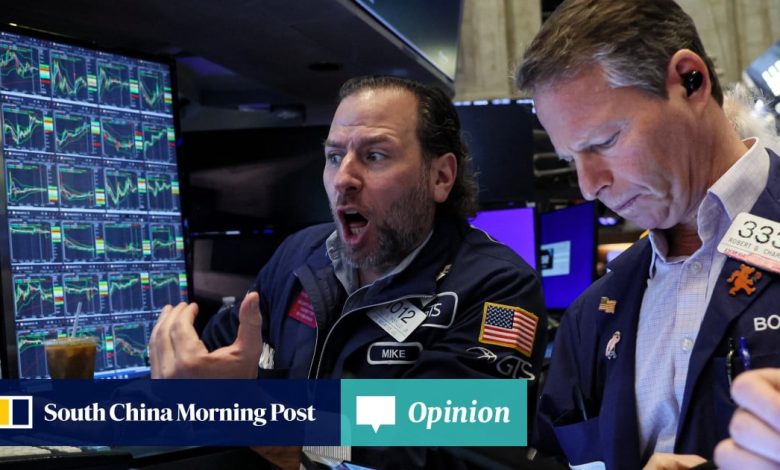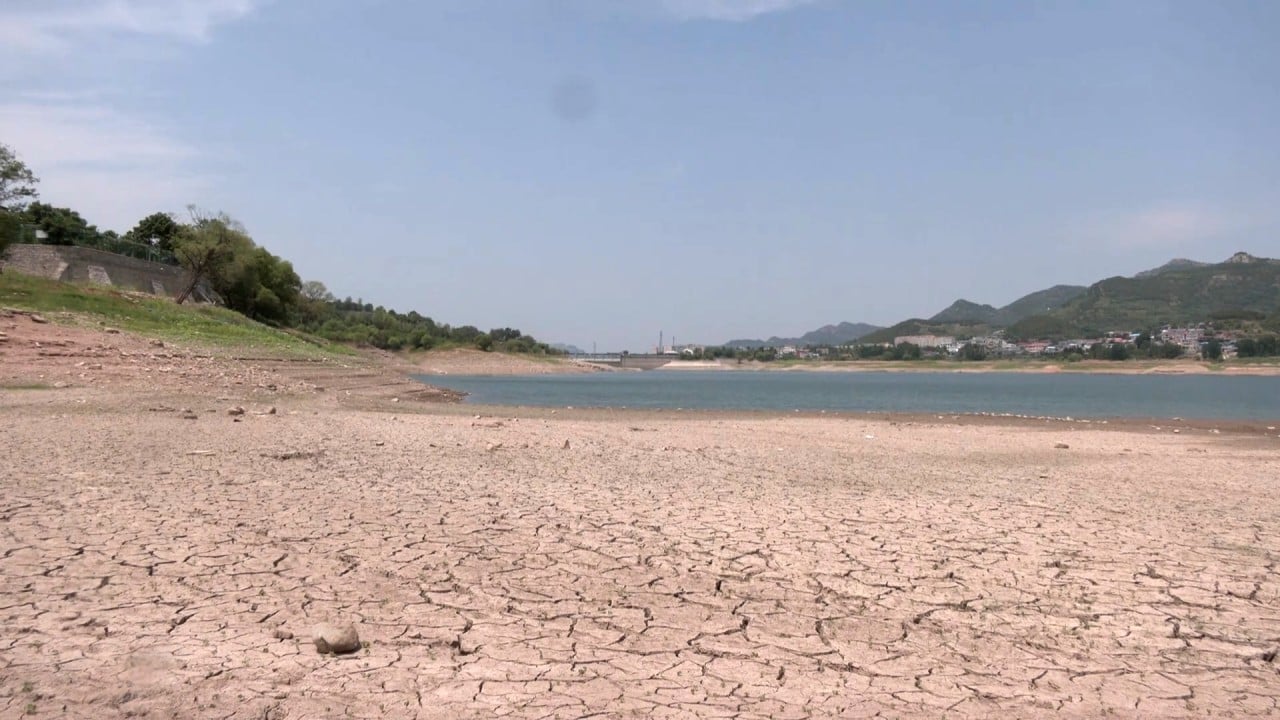Opinion | The great stock market reset is on its way

Such questions may seem frivolous or abstract when markets are inflating rapidly but they take on critical importance once things come down to earth, which is happening now.
Markets are swinging between periods of price erosion and sudden rallies but the unmistakable trend is downwards. That we are about to enter a period of significant currency turbulence after recent central bank moves will accelerate this trend from a creep to a trot, then a gallop.
The investor retreat from what Reuters calls “glitzy megacaps” is threatening to snowball into a “multipronged sell-off that has hit everything from cryptocurrency to gold”.

Aside from an overdue recognition that megacap stocks account for an unhealthily large part of stock holdings, growing fears of a US dollar slump will trigger a long-delayed major correction in markets.
US presidential candidate Donald Trump has declared war on what he deems an overvalued dollar, and even though he cannot formally devalue the currency should he return to power (we live in an era of floating exchange rates where markets decide currency values), his talking-down tactics will dissuade investors from buying dollar securities.
No. Things will change, force majeure, in the wake of the dawning realisation that all is far from well in the world of stock investment. Savings are not being directed efficiently and rationally into where they are most needed, but rather into areas which produce dazzling returns for a while simply because everyone is going there.
Japan analyst Jesper Koll suggested at a financial forum I moderated recently, at the Foreign Correspondents’ Club of Japan, that investors are beginning to diversify out of megacap tech stocks into midcap or even relatively small-cap companies. But that is not really the point.
It is not so much that the Magnificent Seven represent an obscenely large part of the benchmark S&P stock index that matters, but that these also represent only an infinitesimal part of the 58,000 stocks listed on some 60 major stock exchanges worldwide. And that even taken together, these stocks are not representative of global economic activity.
The value of global financial assets under management was estimated to be nearly US$120 trillion last year, according to the Boston Consulting Group. At least part of this needs to be diverted out of megacap stocks, and new inflows of portfolio investment will need to be likewise directed into socio-economic areas of need.
The reset will need to be principally in Western nations because they are the ones that have allowed their stock markets to become liquidity-engorged yet quite narrowly focused monsters. Put together, the world’s listed stocks had a total market capitalisation estimated at US$112 trillion as of last July, a sum that exceeded the size of the global economy, which had a gross domestic product of some US$103 trillion last year.
Change will happen, willy-nilly, whether asset managers like it or not, because the coming stock shakeout or shock will force a much sharper focus upon how poorly directed stock market investment is. The need for sustainable investments will take on an entirely new meaning. Sadly, change happens in the wake of major crises rather than before.
Anthony Rowley is a veteran journalist specialising in Asian economic and financial affairs



 Free spins for beginners
Free spins for beginners